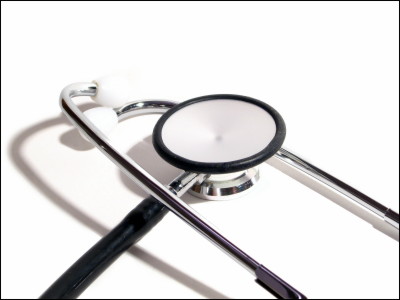It turns out that there are many doctors who make a choice other than the therapy recommended to patients when they become sick

In the case there are two options for a disease, "there is a high probability that life will be saved in response to hard side effects" and "therapy with high risk of death for those with few side effects," when asked for advice from the patient It is revealed by a survey conducted about 1,000 primary care physicians (family doctors, general practitioners) in the United States that there are many doctors who recommend the former and choose the latter when they become the same sickness It is.
Details are as below.Doctors May Choose Different Treatment For Themselves
Duke UniversityBehavioral scientists and doctorsPeter UbelWith the professorUniversity of MichiganBehavioral EconomistBrian J. Zikmund-FisherIn a survey of 940 primary care physicians in the United States, the professors pointed out that "when advising patients who are not going to decide on treatment," and "when you choose treatment based on the assumption that you became ill" I investigated the difference in the choices of doctors. Thesis isArchives of Internal MedicineIt is published in the magazine.
In the survey "Colon cancerScenario "and"Avian influenzaTwo scenarios were set up, namely "a scenario", "a treatment with a high side effect but a low risk of death" and "a treatment with a low side effect but a high risk of death" were prepared, and two scenarios were prepared I randomly assigned a doctor to the assumption that "When I was asked for advice from patients" and "When I became ill", I asked which therapy to choose.
As a result, 378% of the 242 doctors who responded to the "colon cancer scenario" who selected the therapy presumed that "when I became colon cancer" 37.8% chose a therapy with a high risk of death On the contrary, 24.5% of the doctors chose a therapy with a high risk of death when asked "When the patient is asked for advice". In 698 doctors who responded to the "bird flu scenario", the rate of choosing a therapy with high risk of death was 69.8% when receiving treatment, while 48.5% when advising patients, It was confirmed that there was a significant difference between the case of advising patients in both scenarios and the treatment method chosen when you suffered.
According to a survey conducted by Professor Ubel et al. In the past, from the patient's point of view, it becomes paralysisColostomyEven if it is supposed to be used, it is clear that there are many people who think that "better than to die". From this point of view, "a therapy with a high probability of living even if there is a side effect" is "a proper choice", and when a patient is asked for advice, if you objectively judge a therapy with low mortality risk The fact that there are many doctors to recommend is that it meets the values and hope of many patients.
However, if you replace it with yourself, you will see the irritation of side effects for patients on a daily basis at medical facilities, knowing the financial circumstances involved in life-sustaining treatment, having occupational conflicts Doctors do seem to be able to make a judgment that is biased.
In fact when the doctor himself becomes sick and chooses the treatment that he / she takes, when respecting the person's values and intention, it is not possible to deny surroundings to make a choice of "high side-effects but low mortality risk" It may not be possible. However, when a patient who has been found a serious illness and a patient introduced by a family doctor to a specialist asks for advice to a family doctor as a second opinion, "Which therapy should I choose?" What kind of advice will be affected by how the question is asked "What kind of treatment would you like to receive?", Or even if the doctor himself / herself has a fatal illness The content of the advice may be influenced by getting it out, and it may lead to suggesting a choice that does not match patient's values as a result.
To elucidate the psychology of the doctors who were asked for advice to the patient more deeply, it is necessary for people who are forced to make a hard decision to receive expert advice appropriately according to the time and case, to make wiser decision making no regrets Professors Ubel and others are saying that they may lead to doing.
Related Posts:
in Note, Posted by darkhorse_log







